 UK Universities International recently published another edition of Gone International: mobility works, which provides a comparative analysis of both mobile and non-mobile first degree undergraduates through exploring their academic attainment and employment outcomes. The report findings are based on the 2014-15 graduating cohort who responded to the DLHE.
UK Universities International recently published another edition of Gone International: mobility works, which provides a comparative analysis of both mobile and non-mobile first degree undergraduates through exploring their academic attainment and employment outcomes. The report findings are based on the 2014-15 graduating cohort who responded to the DLHE.
Findings reveal that student mobility has increased by 1.8% from the previous 2013-14 graduating cohort. More promising, however, is that the data suggests students with mobility experience were:
- Less likely to be unemployed (3.7% compared to 4.9%)
- More likely to have earned a first class or upper second class degree (80.1% compared to 73.6%) and be in further study (15% compared to 14%)
- More likely to be in a graduate level job (76.4% compared to 69.9%) and earn 5% more than their non-mobile peers
- Four times more likely than non-mobile students to work outside the UK, contributing to our international connections and global connectivity
‘When comparing mobile and non-mobile students, mobile students were slightly less likely to be in work, but more likely to be in further study. However, mobile students were also less likely to be unemployed than non-mobile respondents: 4.9% of non-mobile students were unemployed six months after graduation, compared with 3.7% of mobile students.’
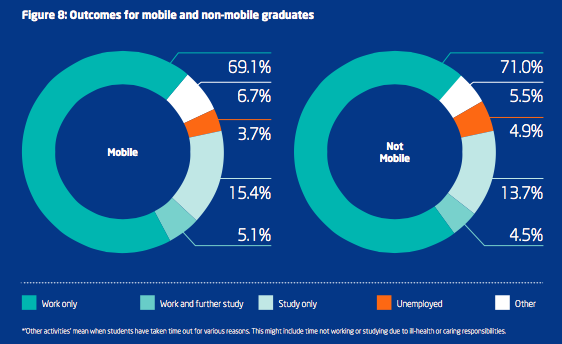
The report addresses which subjects of study are more likely to participate in mobile programmes: clinical medicine scored high in the mobility of their students, followed by a range of particular language studies.
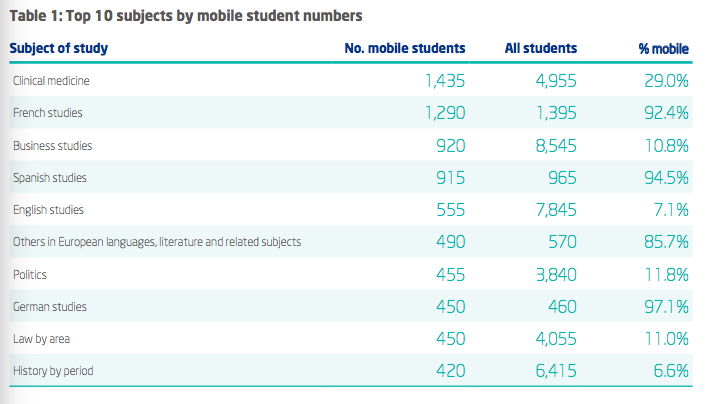
Aside from these two key subjects, average mobility rates tend to drop to around or under 7.5%, with the mobility participation rate of non-language subjects just over 5%.
The figure below demonstrates that in 2013-14, the majority of students participating in mobility travelled to countries within the European Union. A significantly high percentage (68.4%) of mobile students chose to locate within the European Union, with 23.8% of those favouring France followed by Spain at 16.5%. The next highest region of destination was North America at 15.1%, securing the most popular destination outside of the European Union. The least popular regions of destination was the Middle East (0.7%) followed by Australasia (0.9%). 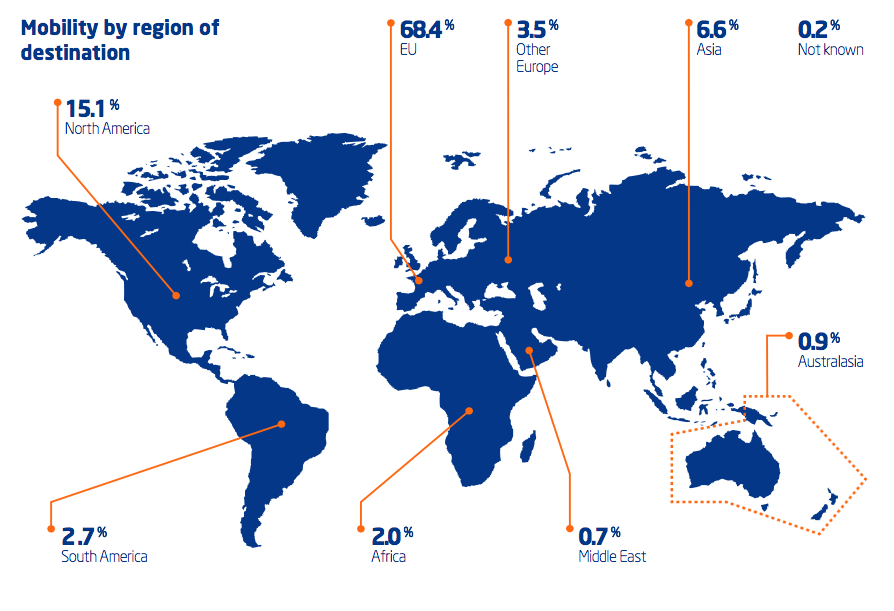
The choice of destination is directly influenced by funding options available. While students using Erasmus head to Europe, those students using other provider-led programmes tend to have a wider option and opt to go elsewhere.
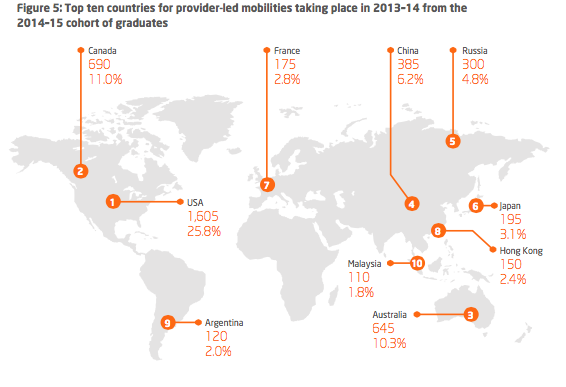
While the benefits of mobility have been popularised recently, a key challenge to ensuring more students participate in mobility programmes is of course funding availability. Findings that highlight the importance of the Erasmus programme – being the most popular option – through its support of more than half of mobilities (55%) has of course caused some concern as Brexit uncertainties cast doubt on its future status for the UK. In fact, the growth in outward mobility has been credited to the UK’s increased participation in Erasmus+.
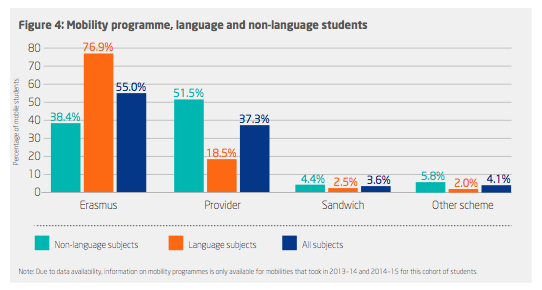
The report is an important contribution to understanding the impact that mobility has on students’ future success, and also demonstrates clear advantages that it has for students from under-represented groups and disadvantaged backgrounds. The ‘positive correlation between mobility and improved academic and employment outcomes’ supports the urgent need for the higher education sector to ensure that outcomes of the Brexit negotiations do not jeopardise the recent rising patterns of mobility.